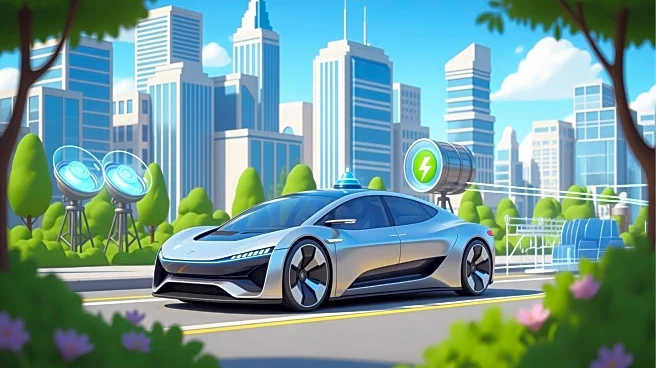What's Happening?
Waymo, a company specializing in self-driving cars, is set to launch its services in Denver, Colorado, by next year. The fleet will consist of electric Jaguars equipped with AI technology, cameras, and sensors. This initiative aims to reduce emissions
and minimize accidents caused by human distractions and road rage. However, concerns have been raised about the vehicles' performance in Denver's snowy conditions, as similar services have been more common in warmer climates. Additionally, there have been minor incidents involving these vehicles in other cities, which some attribute to the technology's early-stage development.
Why It's Important?
The introduction of self-driving cars in Denver represents a significant shift in urban transportation, potentially reducing the city's carbon footprint and improving road safety. This move could influence public policy and urban planning, encouraging other cities to adopt similar technologies. However, the success of this initiative depends on the vehicles' ability to handle Denver's unique weather conditions. If successful, it could pave the way for broader acceptance and integration of autonomous vehicles in urban environments, impacting industries related to transportation, technology, and environmental sustainability.
What's Next?
As Waymo prepares to launch in Denver, stakeholders will closely monitor the vehicles' performance, particularly during winter. The company may need to make adjustments based on initial feedback and operational challenges. Public response and regulatory developments will also play a crucial role in shaping the future of self-driving technology in the region. The outcome in Denver could influence the expansion of autonomous vehicle services to other cities with similar climates.















